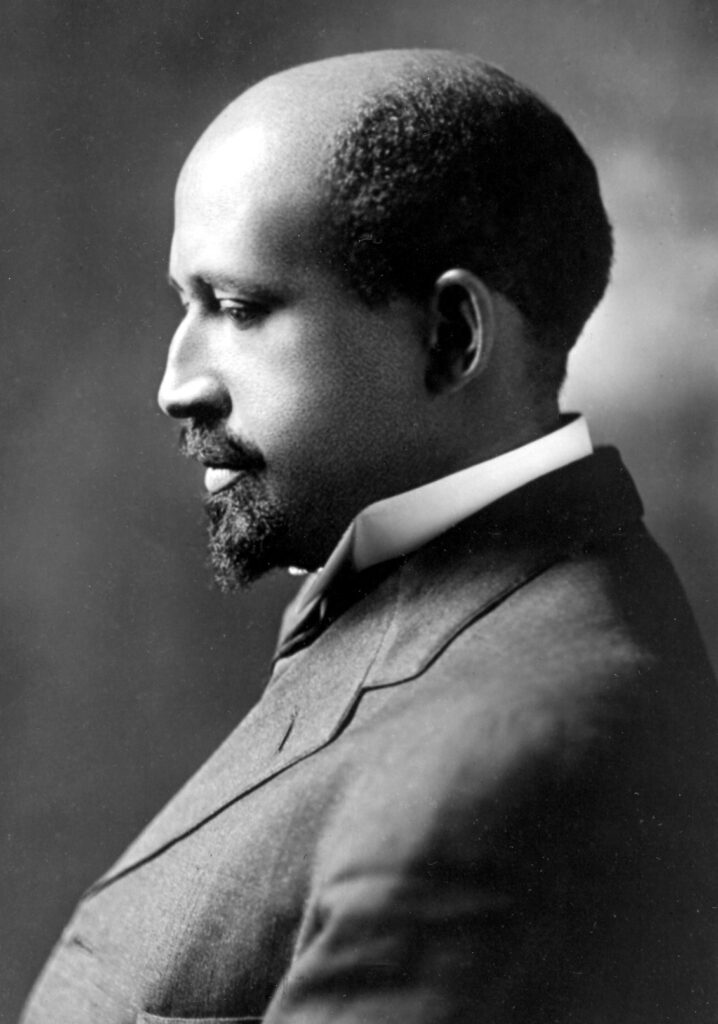W.E.B. Du Bois was a towering figure in American intellectual and cultural history, and his influence extended into the realms of science fiction and speculative thought, laying the groundwork for future Black sci-fi writers and thinkers.
Contributions to Literature and Sociology
Sociological Impact: Du Bois’s pioneering work in sociology, particularly his 1899 study The Philadelphia Negro, was one of the first major empirical studies of African American communities. This work highlighted the systemic barriers faced by Black Americans and laid the foundation for future sociological research on race and inequality.
Speculative Fiction: Du Bois’s short story “The Comet” (1920) is often cited as an early example of Afrofuturism. The story explores themes of race, class, and apocalypse, envisioning a future where racial boundaries are challenged in the face of a global catastrophe. This work influenced later Black sci-fi writers by demonstrating how speculative fiction could be used to address social and racial issues. “The Comet” is a powerful short story that explores several profound themes:
- Racial Inequality: The story highlights the arbitrary and destructive nature of racial divisions. Jim, a Black man, and Julia, a white woman, are the only survivors of a comet strike that kills everyone else in New York. Their survival forces them to confront and temporarily transcend racial boundaries.
- Class and Social Status: The characters’ interactions reveal the deep-seated class divisions in society. Julia’s initial discomfort with Jim reflects the social hierarchies of the time. However, their shared experience of isolation and survival challenges these preconceptions.
- Human Connection: As the sole survivors, Jim and Julia’s relationship evolves from suspicion to mutual dependence. The story suggests that in the face of existential threats, human connections can transcend societal constructs like race and class.
- Apocalypse and Renewal: The comet’s destruction serves as a metaphor for societal collapse and the possibility of renewal. The story ends with the re-establishment of social order, but not without a glimpse of what a more equitable world might look like.
Influence on Afrofuturism
Afrofuturism: Du Bois’s speculative works, including “The Comet” and the recently uncovered story “The Princess Steel,” are considered precursors to the Afrofuturism movement. Afrofuturism combines elements of science fiction, historical fiction, and fantasy to explore the African diaspora’s experiences and envision alternative futures. Du Bois’s exploration of these themes helped shape the narrative techniques and thematic concerns of later Afrofuturist writers like Octavia Butler and Samuel R. Delany.
Afrofuturism is a cultural movement that combines elements of science fiction, historical fiction, fantasy, and Afrocentricity to explore the experiences and futures of the African diaspora. Here are some key aspects:
- Definition and Origins: The term “Afrofuturism” was coined by cultural critic Mark Dery in 1993. It refers to a cultural aesthetic that explores the intersection of African diaspora culture with technology and speculative fiction.
- Themes and Concerns: Afrofuturism addresses themes such as identity, liberation, and the reimagining of Black futures. It often incorporates elements of African mythology, history, and culture, envisioning futures where Black people thrive and lead.
- Influential Works and Figures: Seminal works in Afrofuturism include the novels of Octavia Butler and Samuel R. Delany, the music of Sun Ra and Parliament-Funkadelic, and the visual art of Jean-Michel Basquiat. More recent examples include the film Black Panther and the music of Janelle Monáe.
- Cultural Impact: Afrofuturism has had a significant impact on various forms of media, including literature, music, film, and visual arts. It provides a framework for imagining alternative futures and challenging dominant narratives about race and technology.
W.E.B. Du Bois’s impact on Black sci-fi and speculative thought is profound. His work not only advanced the field of sociology but also provided a template for using speculative fiction to explore and challenge social injustices. His legacy continues to inspire and influence contemporary writers and thinkers in the realms of Afrofuturism and beyond.


